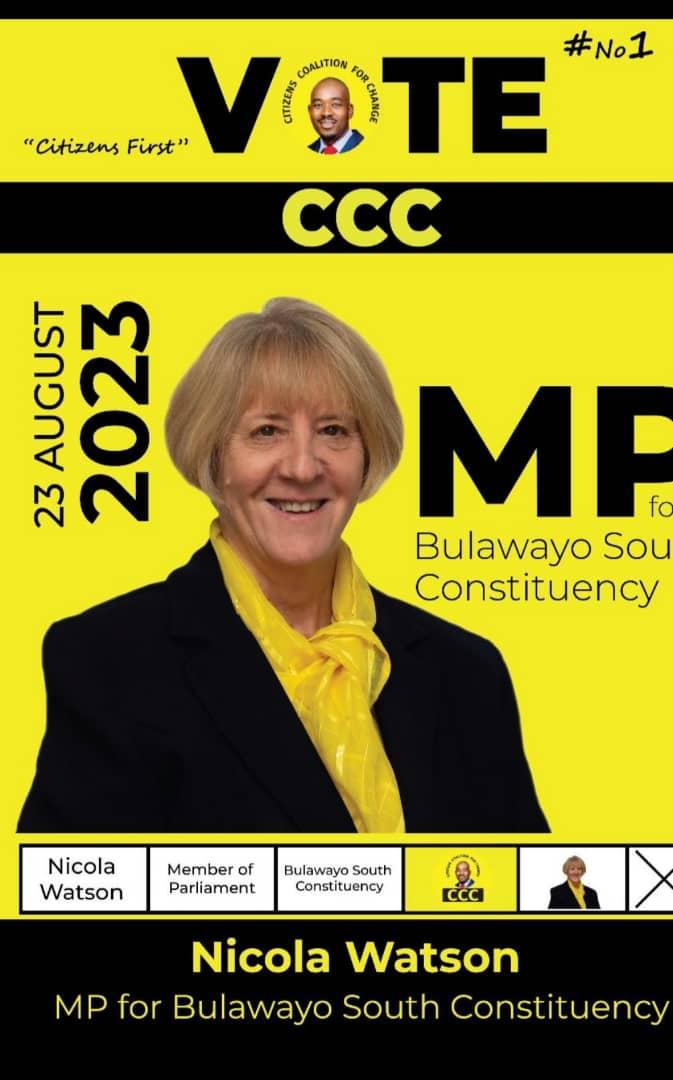Clive Thabo Dube
IN Zimbabwe, few women stand up and participate in elections, let alone take up leadership positions in governance since independence in 1980 compared with men.
Political violence and intimidation has over the years dissuaded females into taking up politics. Ultimately resulting to under representation of women in the political arena.
This year’s female candidates poised to amplify the voices of women in politics plummeted drastically, with only one female vying for presidency compared to the record four female candidates of 2018. For the National Assembly seats, statistics reveal that 70 women are contesting. A mere 11% of the 637 prospective candidates.
A violation to section 17, 56 and 80 of the Constitution.
Representing the main opposition Citizens Coalition for Change (CCC) in a race for a parliamentarian seat in the August 2023 polls, the incumbent Hon. Nicola Watson said the increasing incidents of political violence and hurdles will not deter her from contesting to bring forth change.
“I have been on this path since early 2000 and witnessed the growing poverty and degradation of those in my community and across Zimbabwe. No one least of all me should give up until a change of governance is achieved. I am asked if I am afraid/scared I am not, I am determined to keep going as long as I am able to achieve this goal.” Said Hon. Watson.
Watson was part of the twelve CCC aspiring candidates who were reinstated last week by the Supreme Court to contest in the upcoming elections. The opposition members were barred by High Court judge, Justice Bongani Ndlovu for “not fielding their papers on time.”
In 2013, Zimbabwe introduced the system quota under the new constitution which recognizes gender parity. But the number of female participants still remains below average and critics view these laws only to be existential on paper alone.
The Bulawayo South constituency candidate, says the legislated quota system in an environment which favors males holds no efficacy.
Watson further cited a political environment marred with violence as the key catalyst driving away females from politics.
“The Zimbabwean constitution is very clear (50/50), it needs to be adhered to. I have always said the quota system does not work we also need to end the political violence we see in Zimbabwe so that the very strong female leaders we see within our communities are comfortable to get into politics and leadership.”
Despite women constituting the majority of the country’s population, Zimbabwe, like any other African country is patriarchal where males dominate decision making positions socially, economically, religiously and politically. Also gender based biases are in existence.
Hon. Watson is the current sitting MP for Bulawayo Central which was absorbed by the delimitation report. Eyeing for another legislative term, the 68 year old accountant and politician will battle it against the constituency’s sitting MP and Deputy Minister of Industry and Commerce Raj Modi (Zanu-pf), who according to the Triple C candidate, has no qualms about vote buying.
In her campaign manifesto, Watson is advocating for pensioners to receive better remuneration.
Pensioners make up more than half of the electorate in the Bulawayo south constituency.
She further added that there’s need to rebuild the health care sector.
Watson said once in the August house, she will push for the completion of the Gwayi- Shangani Dam and fight against crime.
Zim GBC News©2023


